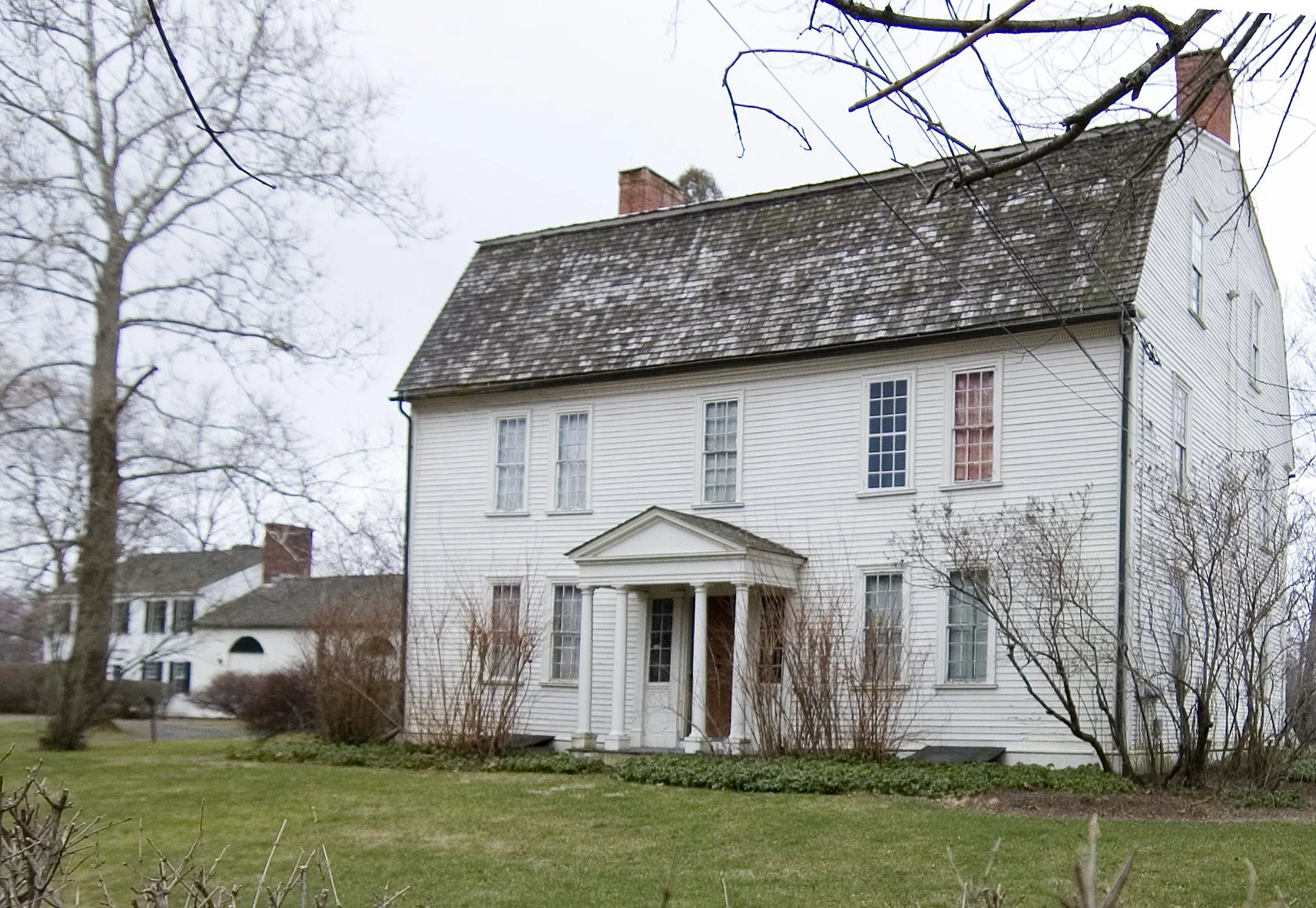PORTER-PHELPS-HUNTINGTON MUSEUM OPENS FOR 2023 SEASON
The Porter-Phelps-Huntington Museum, an historic house dating to 1752 in Hadley Massachusetts, re-opens to the public on Saturday, June 3rd, 2023, for its 74th season. The new Museum tour tells a more complete story of the many different lives lived in this place, drawn from extensive research made possible by grant support from MassHumanities and the National Endowment for the Humanities in 2022. Guided tours will be available Saturday through Wednesday from 1:00 to 4:00 P.M. Tours will last for approximately 45 minutes. The museum is closed on Thursdays and Fridays. Admission is $5 for adults and $1 for children. The Porter-Phelps-Huntington House is listed on the National Register of Historic Places.
The land the Porter-Phelps-Huntington Museum now occupies was cultivated by Nonotock and other Indigenous people for millennia. It was claimed as common acreage by householders in the stockaded town of Hadley when the town was laid out in 1659. In 1752, Moses and Elizabeth Pitkin Porter erected a farmstead known as “Forty Acres” on the banks of the Connecticut River. Today, the Museum at “Forty Acres” uncovers life in rural New England over three centuries. The new guided tours, developed in 2022, introduce visitors to a wide range of individuals, from Quanquan, one of the Native leaders whose name is on the earliest Hadley deeds, to James Lincoln Huntington, who founded the museum in the 1940s. Some are members of the family who owned this property; others are people enslaved by them. The tour provides insight into the lives of domestic servants who lived in the house and raised their own families here, craftspeople who plied their trades here, and finally the family’s generation of “past keepers” who recreated this site as a museum. Through their words, spaces, and possessions, the Museum portrays the activities and diverse histories of the many people who lived and worked on this farmstead. In the eighteenth century, “Forty Acres” was an important social and commercial link in local, regional and national cultural and economic networks. During the nineteenth century, the property became a rural retreat for descendants of the original owners. In the twentieth century, family members preserved the site as an historic house museum. So many very different lives have unfolded on this ground; now in the twenty-first century the Museum strives to tell all their stories and to use those stories as a lens in examining larger questions in regional and national history.
Programs this summer include the 42nd season of WEDNESDAY FOLK TRADITIONS, featuring some of New England's finest ethnic folk music performers and ensembles. The season kicks off on June 14th with our 11th Annual Horace Clarence Boyer Memorial Gospel Concert featuring Grammy-nominated composer Evelyn Harris with Giving Voice performing traditional African-American song canon; Rebelle’s inspirational and meditative Roots reggae; the seven-member world music ensemble The Pangeans; The Wholesale Klezmer Band and their program of Jewish Life in Song; World/Afro–Andean/Latin/Jazz Fusion Viva Quetzal; the mix of jazz, Ju-Ju, samba, hip-hop, and blues of Tony Vacca with World Rhythms; and Afro-Semitic Experience, dedicated to preserving, promoting, and expanding the cultural and musical heritage of the Jewish and African diaspora. The 42nd season of WEDNESDAY FOLK TRADITIONS begins on June 14th and occurs every Wednesday at 6:30pm in the museum’s sunken garden through July.
Bridging the Past and Present, a series of virtual conversations with scholars and public history practitioners on new research into the history of this site will be announced. Discussions will shed light on the documentation and preservation of Phelps Farm, observing the museum’s updated listing in the National Register of Historic Places, the 18th-19th century Slave Trade, and more. All of these talks are free and open to the public.
Reading Frederick Douglass Together at the Porter-Phelps-Huntington Museum, A Site of Enslavement in Western Massachusetts, will present an abridged version of Frederick Douglass’s 1852 speech, “The Meaning of the Fourth of July for the Negro” on September 23rd. This public presentation will coincide with the installation of commemorative Stopping Stones, a national project of the Engagement Arts Fund that commemorates and memorializes sites of enslavement through brass plaques. In partnership with the BIPOC descendants’ organization, Ancestral Bridges, the Stopping Stones Project will install plaques in the sunken garden in a ritual honoring the lives and sharing the histories of Zebulon Prutt, Caesar Phelps, Margaret “Peg” Bowen, her daughters Rose and Phillis, and granddaughter Phillis, six people who were enslaved at this farmstead. This event is free and open to the public and made possible by a grant from Mass Humanities.
The Porter-Phelps-Huntington Museum is the designated Way-Point Center for the National Connecticut River Scenic Byway. The Museum hosts a panel exhibit on the natural history of the Valley, the Museum’s history, and sites travelers will find along the by-way. A trail system begins at the Museum, traverses the farm fields along the river, and continues up the old buggy path to the top of Mount Warner where the farm’s cattle grazed in the 18th century.
The Porter-Phelps-Huntington Museum is located at 130 River Drive, Hadley MA on Route 47 just two miles north of the junction of Routes 9 and 47 North in Hadley. For information concerning tours or special events, phone (413) 584-4699 or check the museum web site: www.pphmuseum.org .
The Porter-Phelps-Huntington Museum is funded by grants from the Mass Cultural Council, a state agency, through its 2022/2023 Cultural Sector Recovery for Organizations, and its Festivals and Programs grants; the National Endowment for Humanities: MassHumanities; and the Amherst and Hadley Cultural Councils, local agencies funded by Massachusetts Cultural Council; Robinson and Cole; Easthampton Savings Bank; Gage-Wiley and Company, and with generous support from many local businesses. The Foundation welcomes contributions from friends and visitors.
